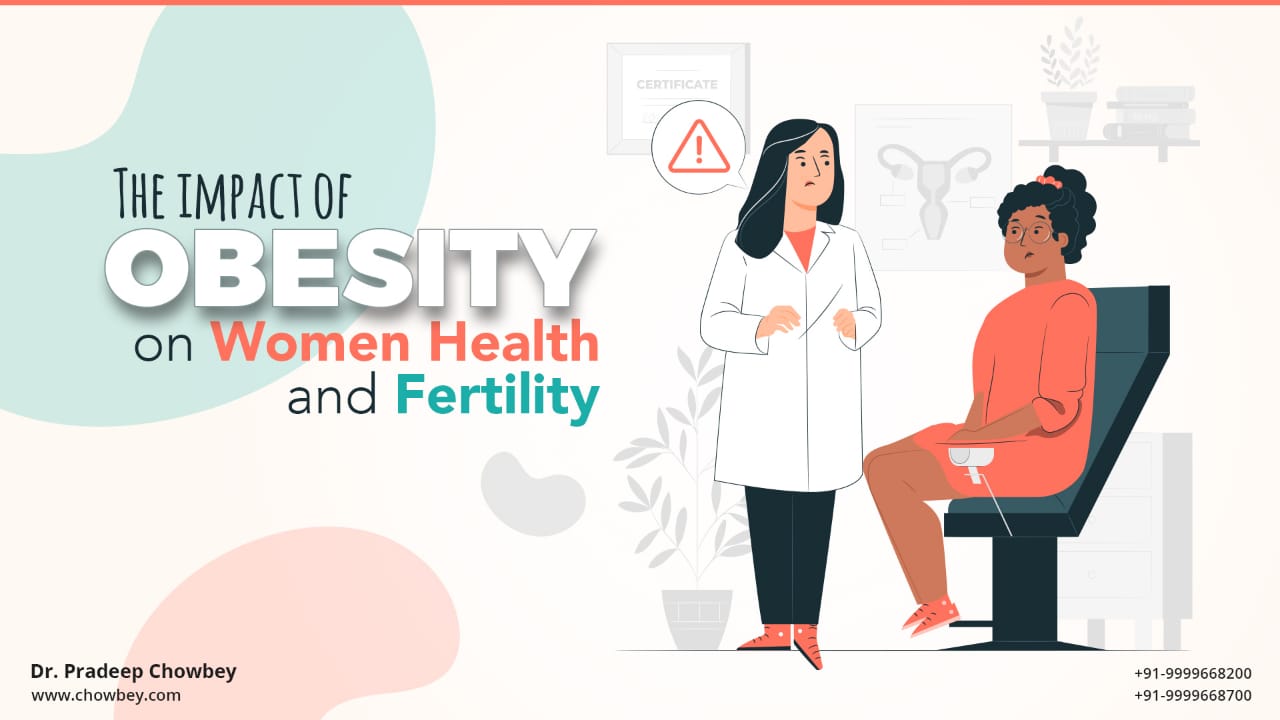
Buckling belts on our increasing waistlines is a rising concern. The imbalance of a beam balance of energy intake and energy expenditure results in an oscillating weighing scale. Obesity has become another epidemic in the country which needs attention. A complex spectrum of factors contributes to obesity and is associated with co-morbidities like diabetes type-2, hypertension, mental illness, malignancies such as colon and endometrial cancer. Obesity is a social stigma. One wants to hide from society and go into a hibernation state and with increasing stress, tries to binge on food as result it’s a vicious cycle which leads to weight gain. Obesity has debilitating effects on both the physical, mental health, and reproductive health of women.
The rising prevalence of obesity has a profound impact on female fertility. Increased body mass index (BMI) is associated with ovulatory subfertility. Fertilization rates are poorer and the embryo quality is impaired in younger obese women. The pregnancy rate has declined and obesity has even contributed to an increased risk of early pregnancy loss. Obesity has been recognized as a common feature of polycystic ovary syndrome (PCOS) in women. PCOS has metabolic characteristics that include prominent defects in insulin action that confer a substantially increased risk for glucose intolerance and type 2 diabetes.
The immediate lifestyle modification and weight loss have regularised menstrual cycles and increased the chance of spontaneous ovulation and conception in overweight and obese women. The World Health Organization has defined obesity as a body mass index (BMI) ≥ 30 kg/m. The detrimental effects of obesity on fertility and obstetric outcomes are well established. Obesity has a negative impact on natural conception, pregnancy, and the long-term health of mother and child. Obesity is associated with an increased risk of almost all pregnancy complications such as gestational hypertension, preeclampsia, gestational diabetes mellitus (GDM), delivery of a large for gestational age infant.
Gradual sustained weight loss is essential. Lifestyle modifications (diet, exercise), pharmacological therapies, and surgical intervention are the treatment modalities. Bariatric surgery (weight loss) is effective at improving factors that may underlie fertility and pregnancy outcomes: body weight, type 2 diabetes, menstrual dysfunction, and PCOS. Bariatric surgery improves maternal health during pregnancy which includes a reduction in rates of gestational diabetes and hypertensive disorders. Metabolic disturbances leading to fertility difficulties are the current concern for women to consider weight loss surgery to not only improve their own health but also their progeny. Nevertheless, Bariatric surgery has become an increasingly utilized and effective approach for achieving sustainable weight loss, as well as reducing morbidities associated with morbid obesity.
The rise of obesity has made the entire generation at risk. The steering gear is in our hands to balance the risks of intervention against the benefits of improved long-term health, longevity, and wellbeing.